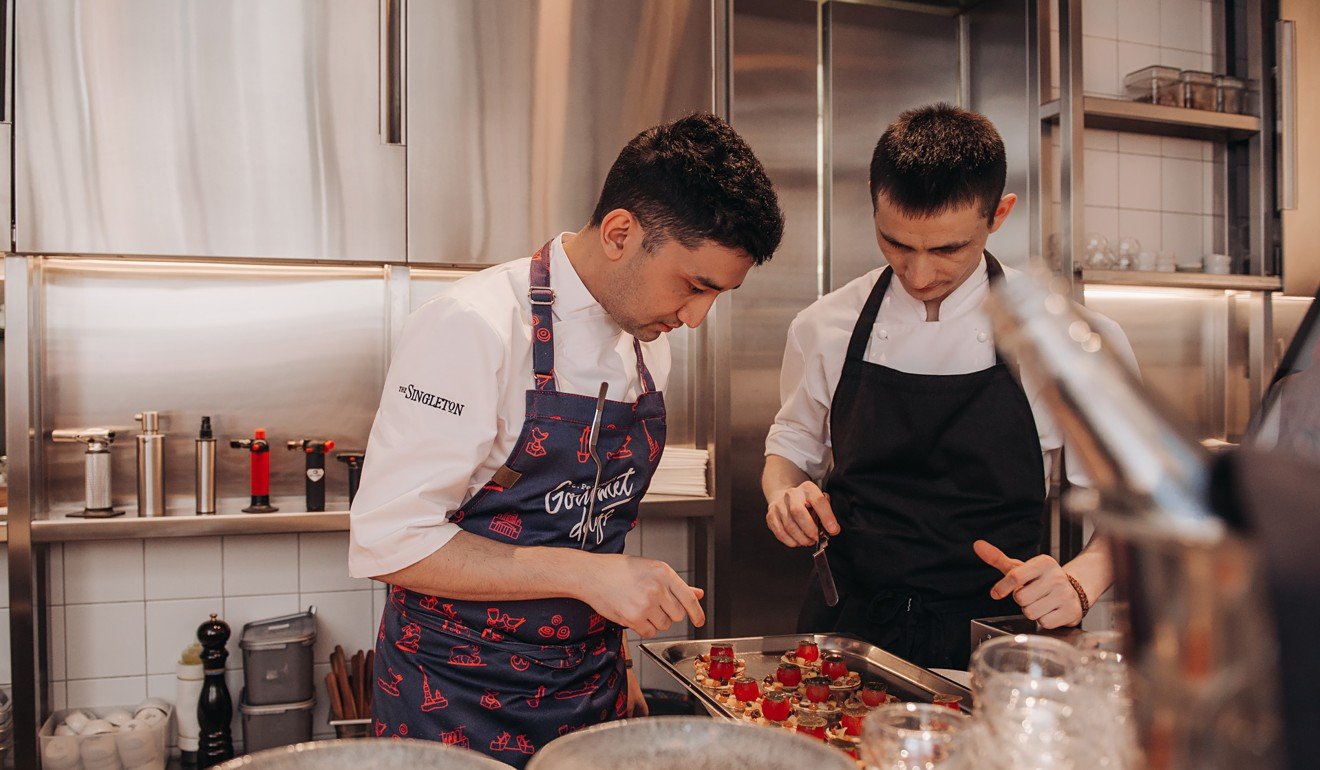
Chef turns Russian embargo on food imports to advantage at Birch, his St Petersburg restaurant
- He learned to make good food out of very little as a teenage army cook in Central Asia, and put that skill to good use when Russia halted food imports from EU
- Hezret-Arslan Berdiev’s curiosity and extraordinary taste memory allows him to create complex, unique dishes. No wonder Birch is booked out weeks in advance
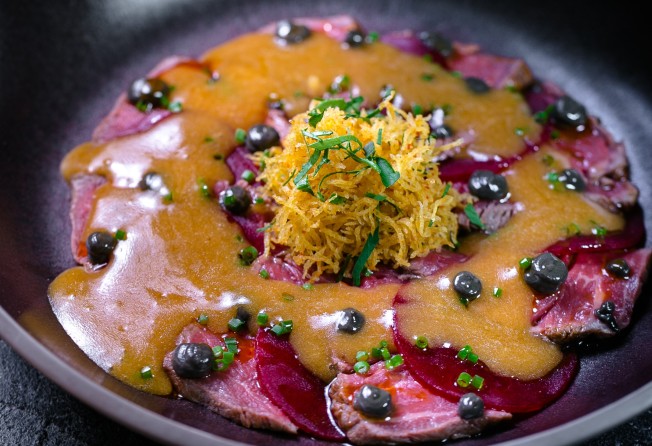
“I learned to cook at the age of 17 while on national service in the Turkmen army,” says Hezret-Arslan Berdiev. “On my second day I was told to go to the kitchen. You need to be effective at your work in an army kitchen or you will get beaten.
“The products we had to cook with were of poor quality, so I had to make good food out of very little. It was a great training.”
Berdiev’s work quickly caught the attention of a general in the Central Asian state, who would demand the young chef make him plov – a rice dish, rich with lamb fat and sweet with carrots. “Every Sunday he would ask for me to cook this,” he says.
The chef’s thrifty yet skilful approach has endured – and at Birch, his casual, all-day dining restaurant in St Petersburg, Russia, he continues to elicit the finest flavours from the simplest of ingredients, attracting diners from around the world.

“Anyone can use foie gras or caviar or truffles and make a good dish,” he says. “The real skill lies in taking something ordinary and making it extraordinary.”
Being creative with humble ingredients has become a necessity rather than a conceit in today’s Russia. On August 6, 2014 Russian president Vladimir Putin signed a decree prohibiting the import of numerous agricultural products and foodstuffs from the European Union for one year. The embargo has been extended until December 2019, and now also includes the US, Canada, Australia and Norway, among other nations.
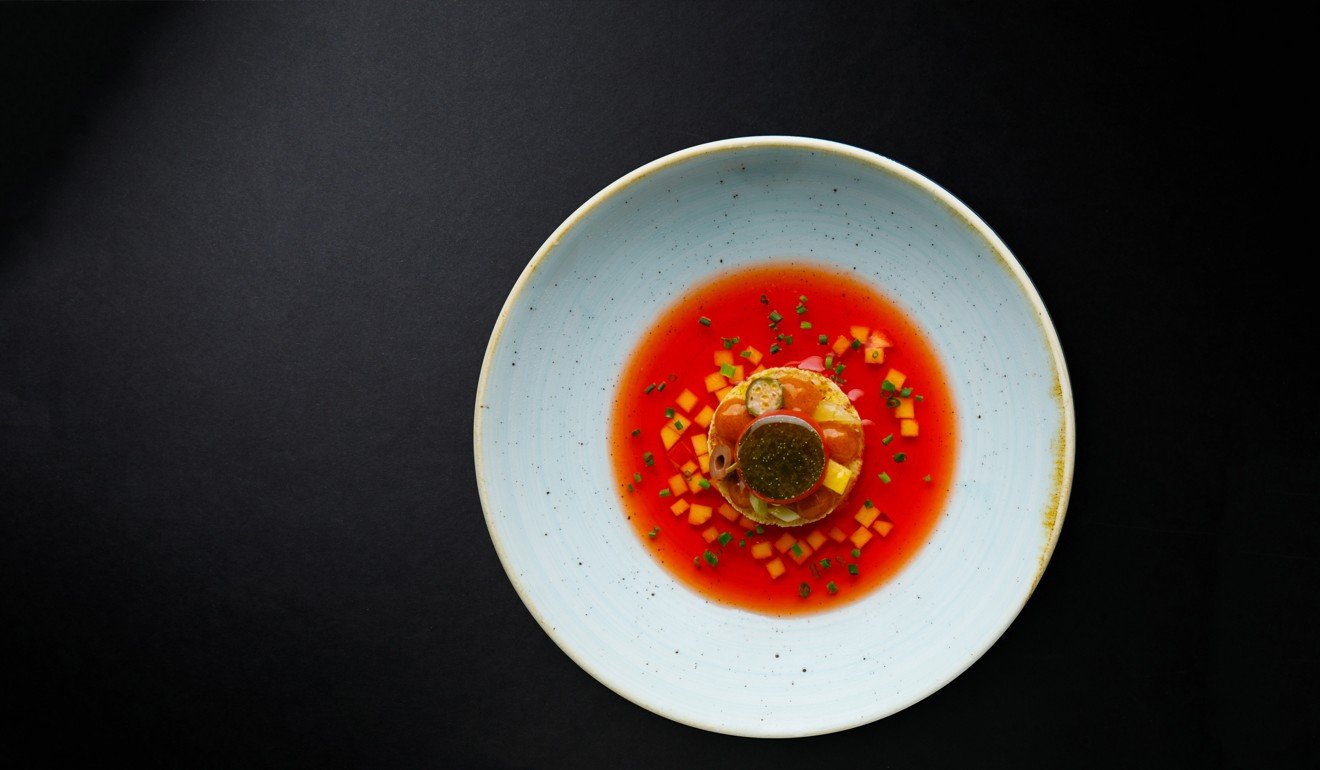
A response to Western sanctions imposed on Russia due to the annexation of Crimea, the decree was intended to “ensure the security of the Russian Federation”. The move has given a boost to Russian agriculture and fisheries.
“Six years ago there weren’t really any Russian products,” says Berdiev. “But now we use Russian seafood, Russian meat, Russian vegetables, home-made cheese. It’s not the same quality, but for me it is good. I know how it should be if I used Parmigiano Reggiano [Parmesan cheese] and so I know how to make a similar effect [with Russian products],” he says.
The 31-year-old chef grew up in Dashoguz, in northern Turkmenistan, and lived close to the local market, with its high-quality fruit and vegetables, and air perfumed by spices. He left his homeland in 2005 to study economics in St Petersburg.
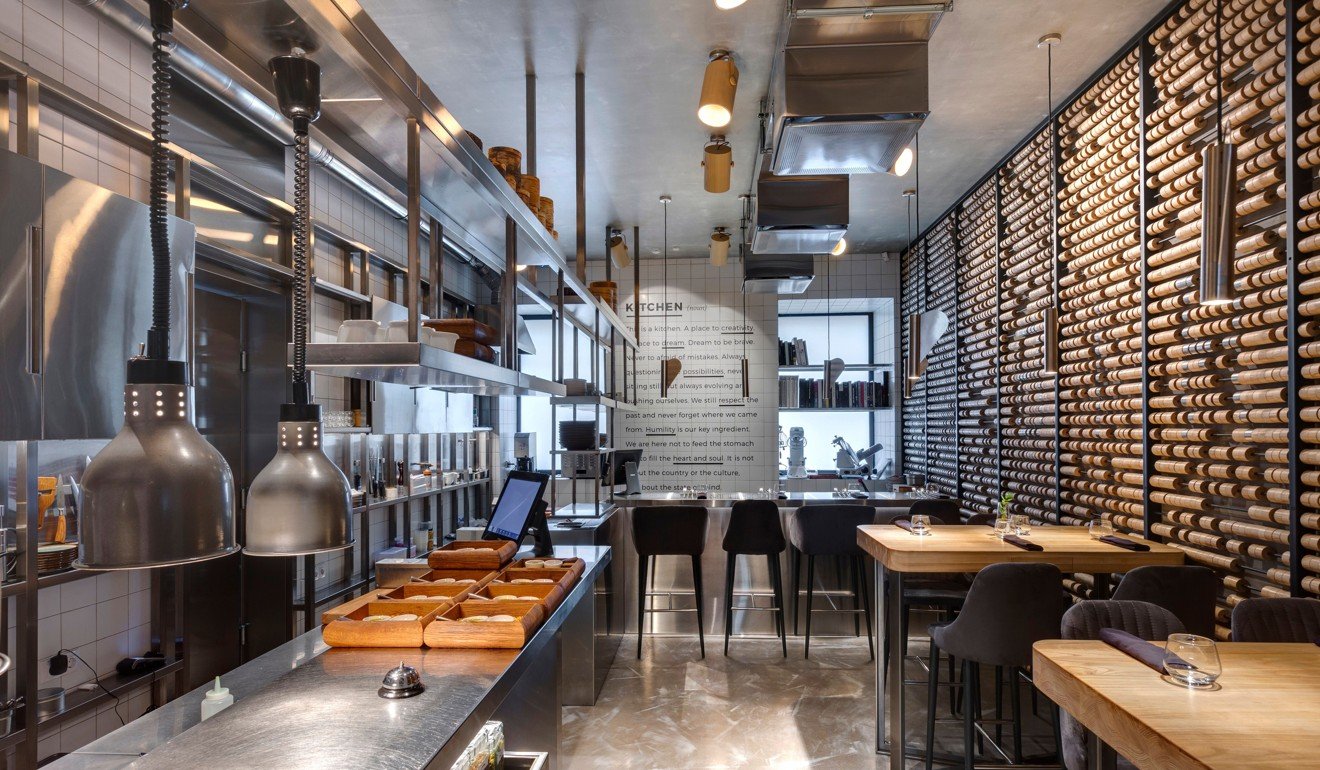
His elegant degustation menu at the award-winning Birch is very different to the hearty fare he grew up eating – slow-cooked stews, rich with spiced fat, and the filling plov he cooked for his superiors in the army. But he retains one Turkmen tradition, offering hot bread to his guests on arrival.
“In my country, when you visit someone’s home they give you bread, and the freshness and temperature of the bread tell you a lot about that family. I give fresh corn bread to all my customers,” he says.
A stint at a Japanese restaurant during his student days introduced Berdiev to more delicate flavours and techniques. I visit his restaurant and am delighted by a perfect prawn wonton, served in a rich, deeply satisfying Kamchatka crab bisque, balanced by the lightest and sharpest coconut espuma – nods to his experience of Asian ingredients.
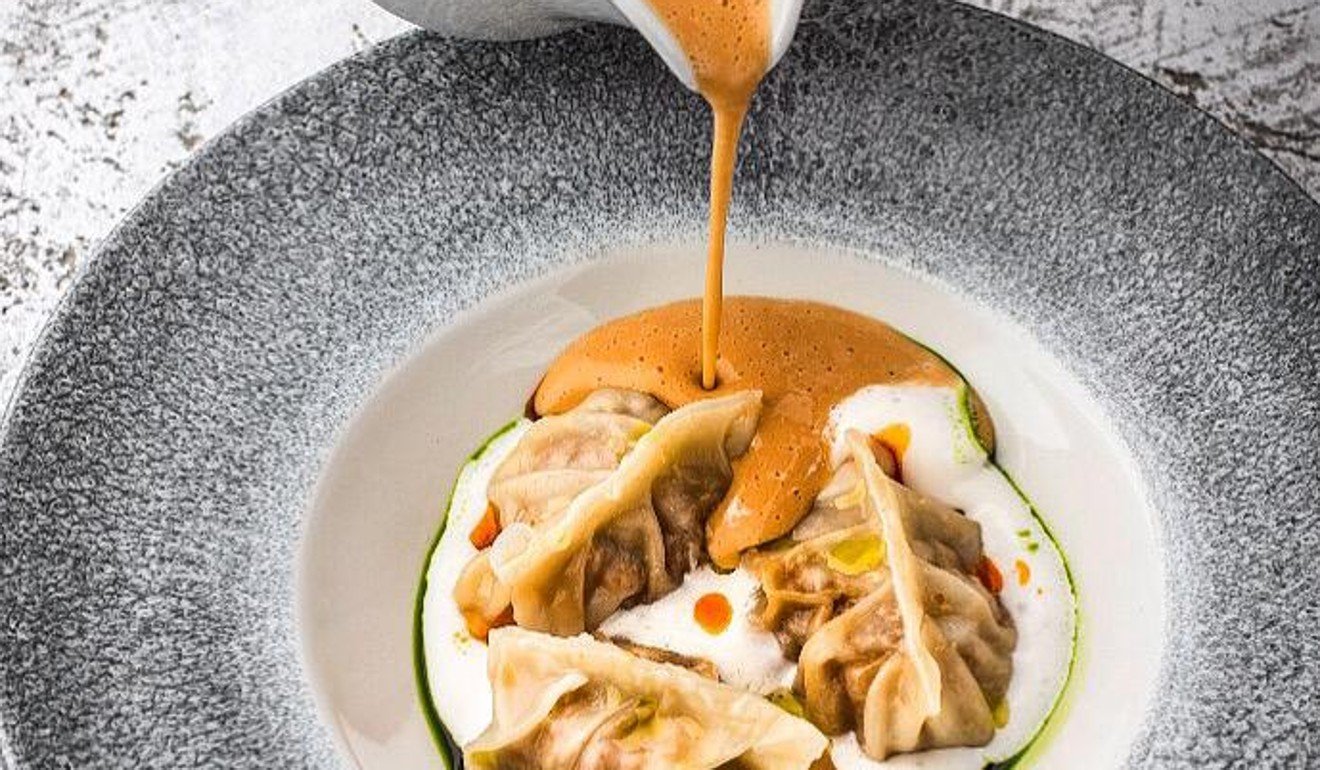
He spent five years working with chef Andrea Accordi (recently of the Four Seasons hotel in Hong Kong) at Italian restaurant Percorso in St Petersburg, taking a pay cut to work alongside the esteemed Italian chef because he knew he would learn from him.
“When I came to Andrea I only knew a little about food. I understood I needed to squeeze my boss for knowledge. I asked a million questions in the first year-and-a-half. He is an amazing chef. I wanted to think like him, to learn new techniques.”
Berdiev’s relentless search for understanding and an extraordinary memory for the exact taste of different ingredients has made his cooking quite remarkable. He puts ingredients together with uncanny intuition, creating complex, yet elegant flavour profiles, uniquely his own. In 2016 he was regional winner of the S. Pellegrino Young Chef award.
If we didn’t have [the embargo on food imports], no one in Russia would be selling their products. It helps you to discover your own identity
When he opened Birch, in December 2017, he refused to take on any backers, needing the autonomy of his own place.
“I didn’t want people telling me what to put on the menu,” he says “Our restaurant is very simple. We concentrate on taste but we have a very good price and quality.
“Twelve courses cost about €35 (US$39). In [western] Europe a degustation menu of that size could easily be €200 or €300. Our à la carte menu is also well priced. We don’t make a lot of profit.”
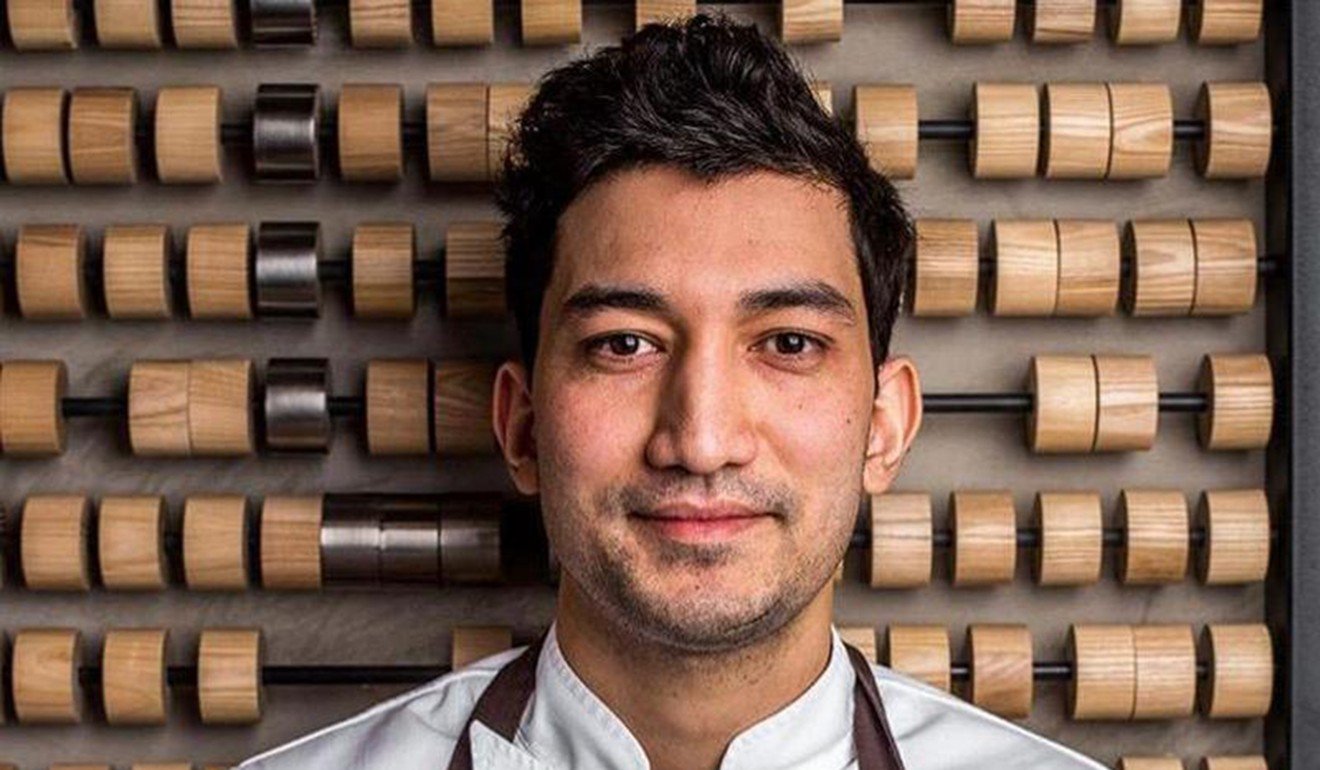
The economist in Berdiev decided to keep prices low but to turn over a lot of covers. He serves non-stop from midday until after dinner, limits diners to a two-hour stay and achieves seven turns a day.
“We are a small restaurant, but we serve 240 guests in a day,” he says. “This makes the small profit margin per customer perfectly workable.”
Indeed, Berdiev managed to pay back the loans he and his partners took out to launch the restaurant within five months of opening.
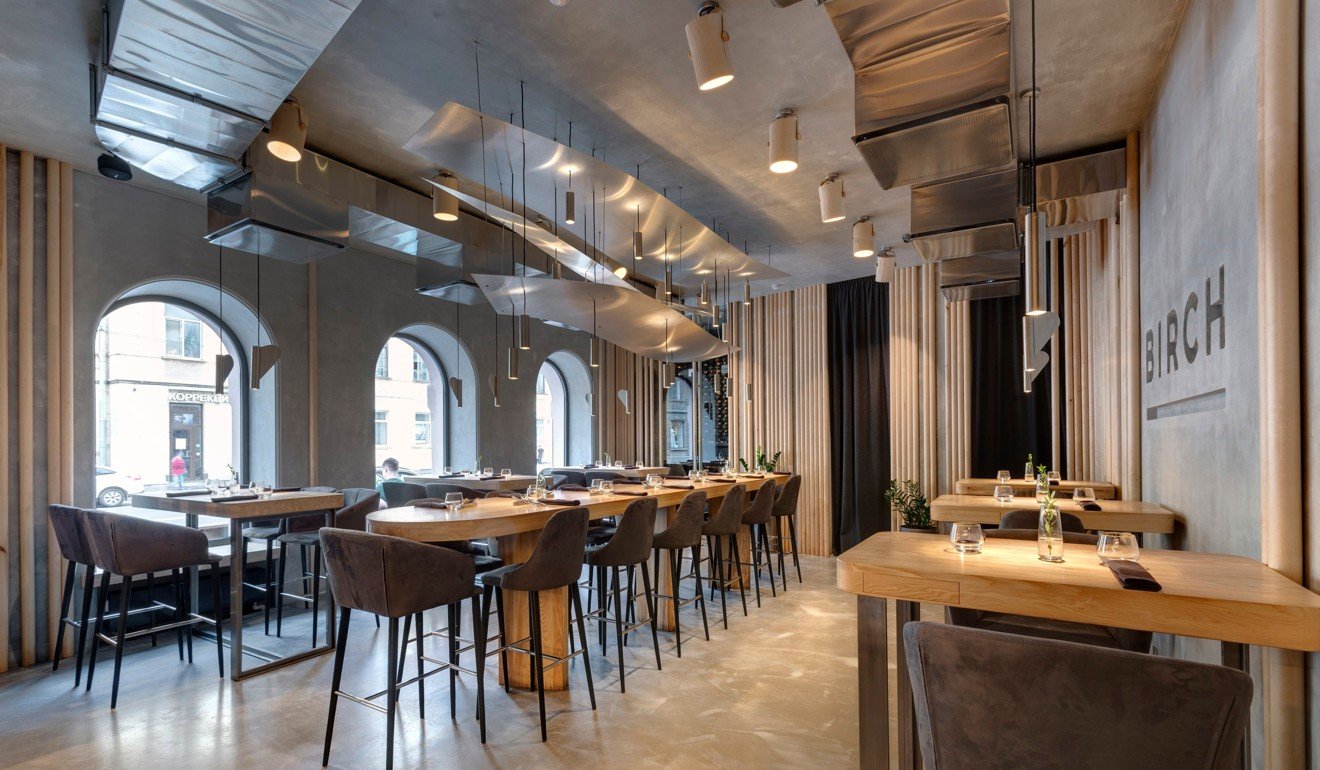
Married to a Russian national and the holder of a Russian passport, he says: “I feel Russian now. I haven’t been back to Turkmenistan for a long time – the regime changed and they would not recognise my dual nationality.”
Berdiev has represented Russia in international cooking competitions. “I love to travel and these competitions give me the opportunity to visit other countries,” he says. “But most of all I like to compete and win.”
His competitive spirit extends to the positioning of his restaurant – directly across the street from a smart bistro called Duo Gastrobar, owned by famous St Petersburg chef Dmitriy Blinov. Berdiev waited for eight months for the premises where Birch now stands to become available, and ignored disobliging comments from onlookers surprised by his choice of location.
In my country, when you visit someone’s home they give you bread, and the freshness and temperature of the bread tell you a lot about that family. I give fresh corn bread to all my customers
“People would say to me, ‘Oh, so when Duo Gastro is full, you can take their overspill’,” he says. “This made me determined. I couldn’t sleep when I heard this so I changed it in three months. Now, when we are full I send customers to Duo Gastrobar.”
The restaurant scene in St Petersburg is evolving quickly. Increasing numbers of chefs are opening independent restaurants, and serving modern and innovative food. The locals appreciate the improved choice of places to eat, but sometimes struggle to get a table, as visitors from the Russian capital arrive in the city at the weekend.
“Prices in St Petersburg are very cheap compared to Moscow. Our restaurant is full of people from Moscow on Saturday and Sunday,” Berdiev says. “They take a trip for the weekend to eat and enjoy.”

In 2018, Birch was inundated with foreign guests – visitors to the Fifa World Cup.
“We were first choice on [review site] TripAdvisor from May to September last year,” says Berdiev. “The restaurant was exploding. We put benches outside and were serving up to 300 people a day.”
The World Cup effect has endured; Berdiev does no marketing and refuses to employ a public relations team – another of his money-saving measures as a restaurateur.
“I get a lot of emails from overseas asking for reservations,” he says. “People have heard about the restaurant by word of mouth.” Birch is booked up weeks in advance.
Driven and hard-working, Berdiev even manages to be positive about the food embargo. “It has helped,” he says. “If we didn’t have it, no one in Russia would be selling their products. It helps you to discover your own identity.”
The embargo may be motivating local producers, but it has also put a lot of pressure on chefs by limiting the quality and quantity of ingredients available to them. This all plays to Berdiev’s strengths.
“It is good for me because I have to work harder and think more to get the flavour,” he says. “With a good product it is literally just ‘don’t forget the salt’.”